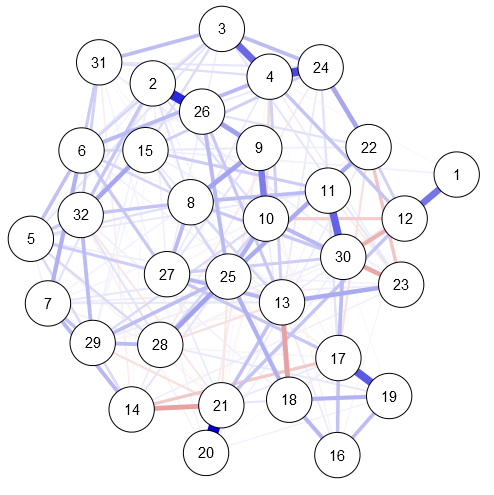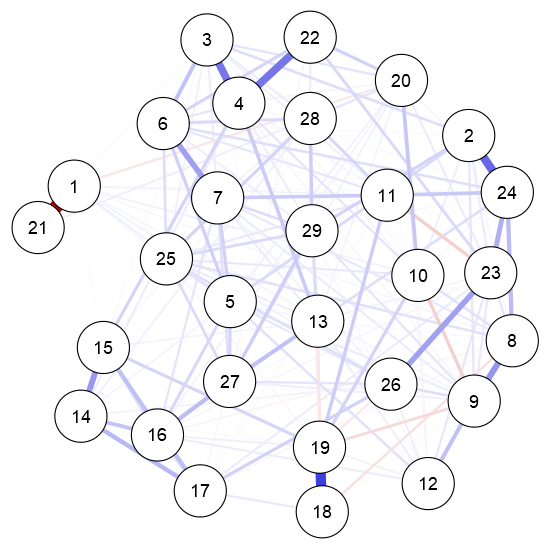We have recently finished gathering data from a representative sample of Lithuanian households with adolescents. We have 1016 observations in total: 508 parents and 508 adolescents, one from each household. We are eagerly working on analyzing the data and preparing scientific publications, but for now we present a sneak-peak of some of the interesting descriptive characteristics of our sample.
The green-coloured behaviours represent actions that are positive toward the environment, while the red-coloured behaviours represents actions that are harmful. The tables are sorted by mean score of frequency of each action, the higher the number – the more frequent the action. In a perfect world, the green ones should have high numbers and the red ones should have low numbers. The table is sorted by mean, with the most frequent behaviours at the top.
| Adults | Mean | Node. No. | |
| After a nature visit I did not leave any trash behind | 4,35 | 10 | |
| I returned plastic bottles to get back my deposit | 4,11 | 25 | |
| I bought beverages in returnable containers | 4,01 | 28 | |
| I turned on the washing machine only when it was completely full | 3,88 | 29 | |
| I did not throw away any food that I bought | 3,88 | 14 | |
| I bought meat for myself | 3,85 | 18 | |
| I threw out old batteries in appropriate recycling bins | 3,71 | 9 | |
| I use my car (as opposed to public transportation) to travel longer distances | 3,54 | 30 | |
| I sorted plastic waste that is not returnable to get back the deposit | 3,48 | 26 | |
| I used reusable shopping bags | 3,40 | 32 | |
| I sorted paper waste | 3,40 | 2 | |
| I bought locally sourced goods | 3,32 | 5 | |
| I washed myself in a way that saves water | 3,14 | 7 | |
| I used eco-friendly household appliences | 3,10 | 8 | |
| I gave away or sold good but unsused items | 2,97 | 15 | |
| I bought bottled water | 2,97 | 19 | |
| I bought packaged food items | 2,96 | 16 | |
| I drove in a way that saves gas | 2,93 | 11 | |
| I composted food waste, weeds, and other compostables | 2,74 | 22 | |
| I bought hot beverages in single-use cups | 2,58 | 17 | |
| I bought ECO label food items | 2,57 | 27 | |
| I researched how I can be more eco-friendly | 2,56 | 6 | |
| I used small reusable baggies when shopping | 2,42 | 31 | |
| I educated other on their environtmentally harmful behavior | 2,08 | 3 | |
| I traveled to work on foot | 2,05 | 1 | |
| I used public transportation to get to work | 1,94 | 23 | |
| I participated in nature-cleaning initiatives | 1,92 | 24 | |
| I left unused electrical appliences running while not using them | 1,82 | 20 | |
| I ate vegetarian food | 1,76 | 13 | |
| I volunteered in pro-environmental organisations | 1,69 | 4 | |
| I travelled to work on a bicycle | 1,55 | 12 | |
| I left the water running when I did not need to | 1,55 | 21 |
Below is a network diagram that corresponds to this table. It shows how various actions are inter-related. Blue lines indicate a positive relationship while red lines indicate a negative relationship. Line thickness indicates the strength of a relationship. You can see how some behaviours naturally cluster together while others are very unrelated to any other behaviour.

And here are the same data for adolescents (save for a few actions that are specific for adults). Below the table there is a corresponding network diagram as well.
| Adolescents | Mean | Node. No. |
| After a nature visit I did not leave any trash behind | 4,05 | 9 |
| I bought beverages in returnable containers | 3,81 | 26 |
| I returned plastic bottles to get back my deposit | 3,66 | 23 |
| I threw out old batteries in appropriate recyling bins | 3,47 | 8 |
| I did not throw away any food that I bought | 3,43 | 12 |
| I traveled to school on foot | 3,37 | 1 |
| I bought bottled water | 3,12 | 17 |
| I sorted paper waste | 3,09 | 2 |
| I sorted plastic waste that is not returnable to get back the deposit | 3,01 | 24 |
| I bought locally sourced goods | 2,92 | 5 |
| I used reusable shopping bags | 2,69 | 29 |
| I researched how I can be more eco-friendly | 2,68 | 6 |
| I bought packaged food items | 2,66 | 14 |
| I washed myself in a way that saves water | 2,65 | 7 |
| I gave away or sold good but unsused items | 2,65 | 13 |
| I turned on the washing machine only when it was completely full | 2,63 | 27 |
| I bought hot beverages in single-use cups | 2,60 | 15 |
| I bought meat for myself | 2,41 | 16 |
| I used public transportation to get to school | 2,38 | 21 |
| I participated in nature-cleaning initiatives | 2,28 | 22 |
| I used small reusable baggies when shopping | 2,24 | 28 |
| I bought ECO label food items | 2,23 | 25 |
| I left unused electrical appliences running while not using them | 2,11 | 18 |
| I composted food waste, weeds, and other compostables | 2,02 | 20 |
| I educated other on their environtmentally harmful behavior | 1,85 | 3 |
| I volunteered in pro-environmental organizations | 1,79 | 4 |
| I ate vegeterian food | 1,75 | 11 |
| I left the water running when I did not need to | 1,69 | 19 |
| I traveled to school on a bycycle | 1,51 | 10 |

We hope that you find this preliminary data on the prevalence and inter-relations of various pro-environmental behaviours interesting. Feel free to write us your comments and insights and stay tuned for more news from our project!

